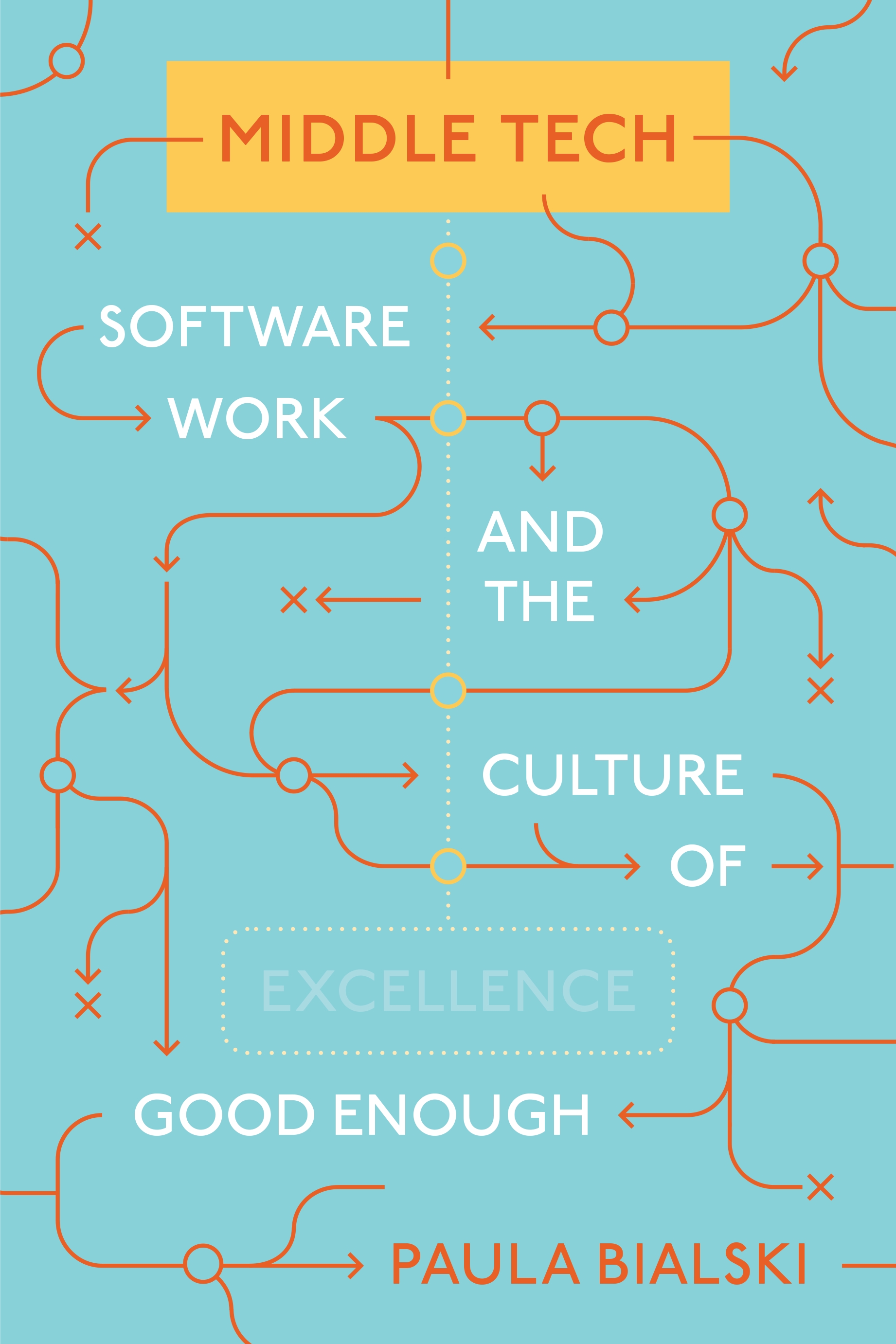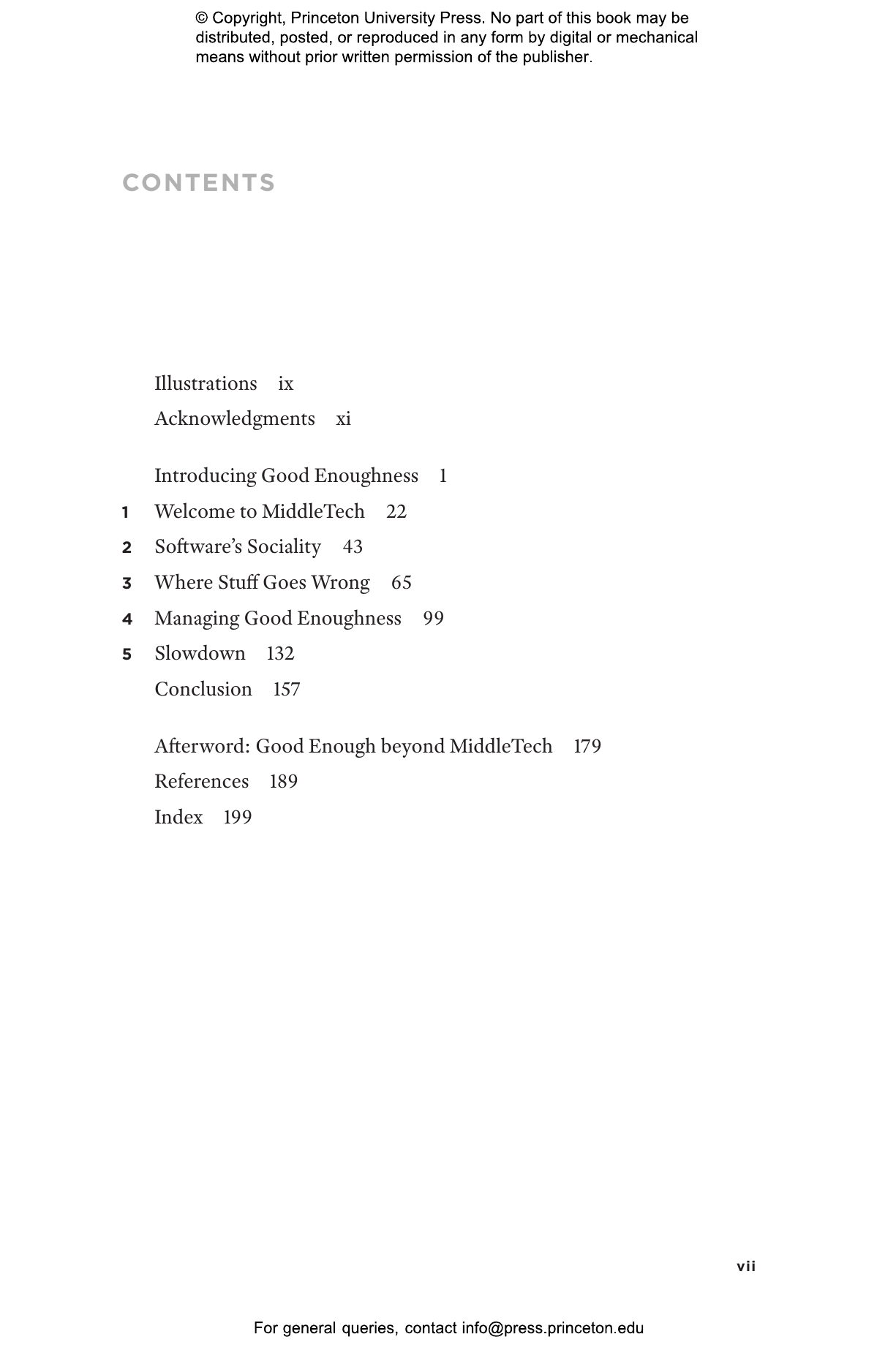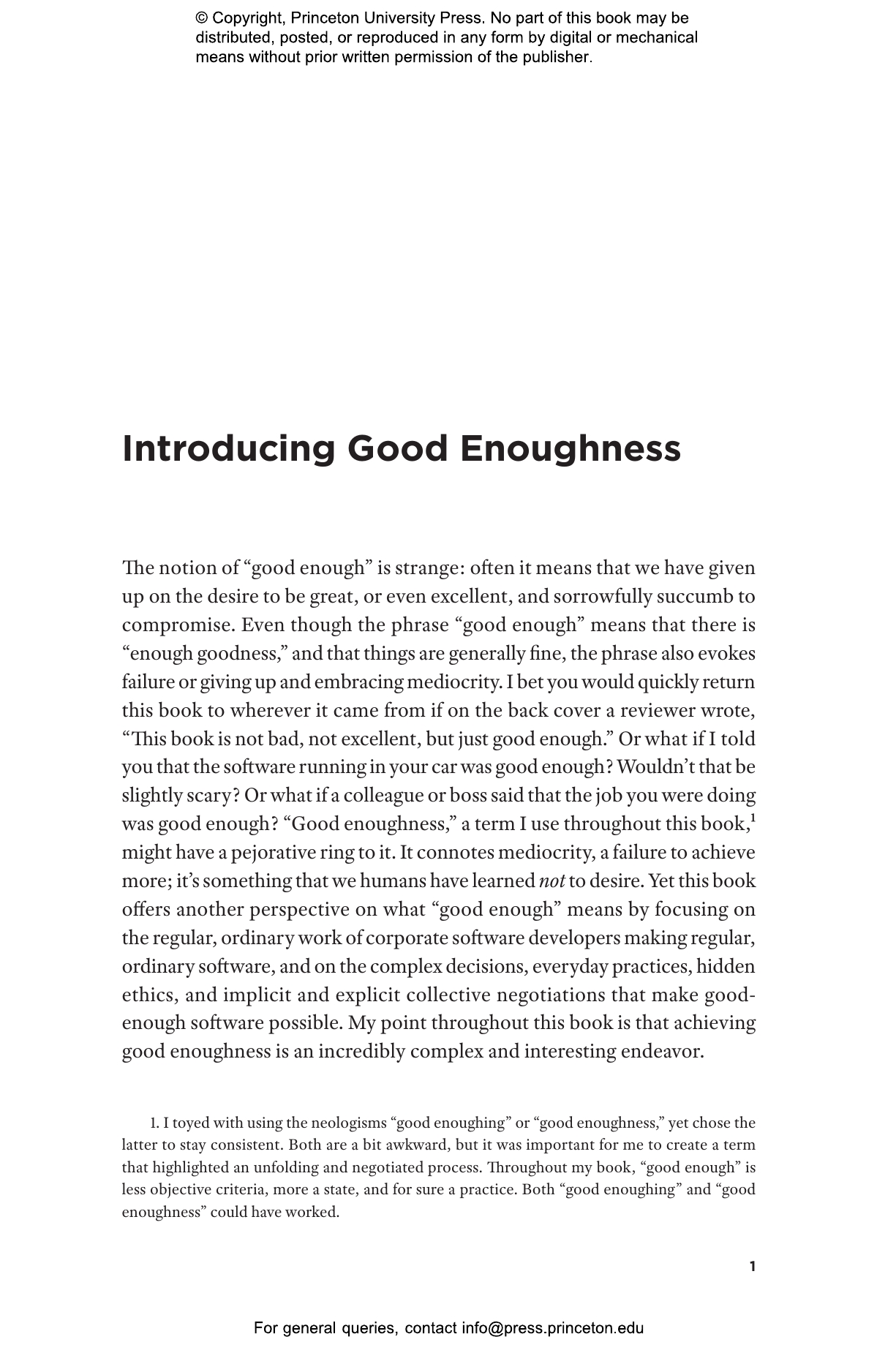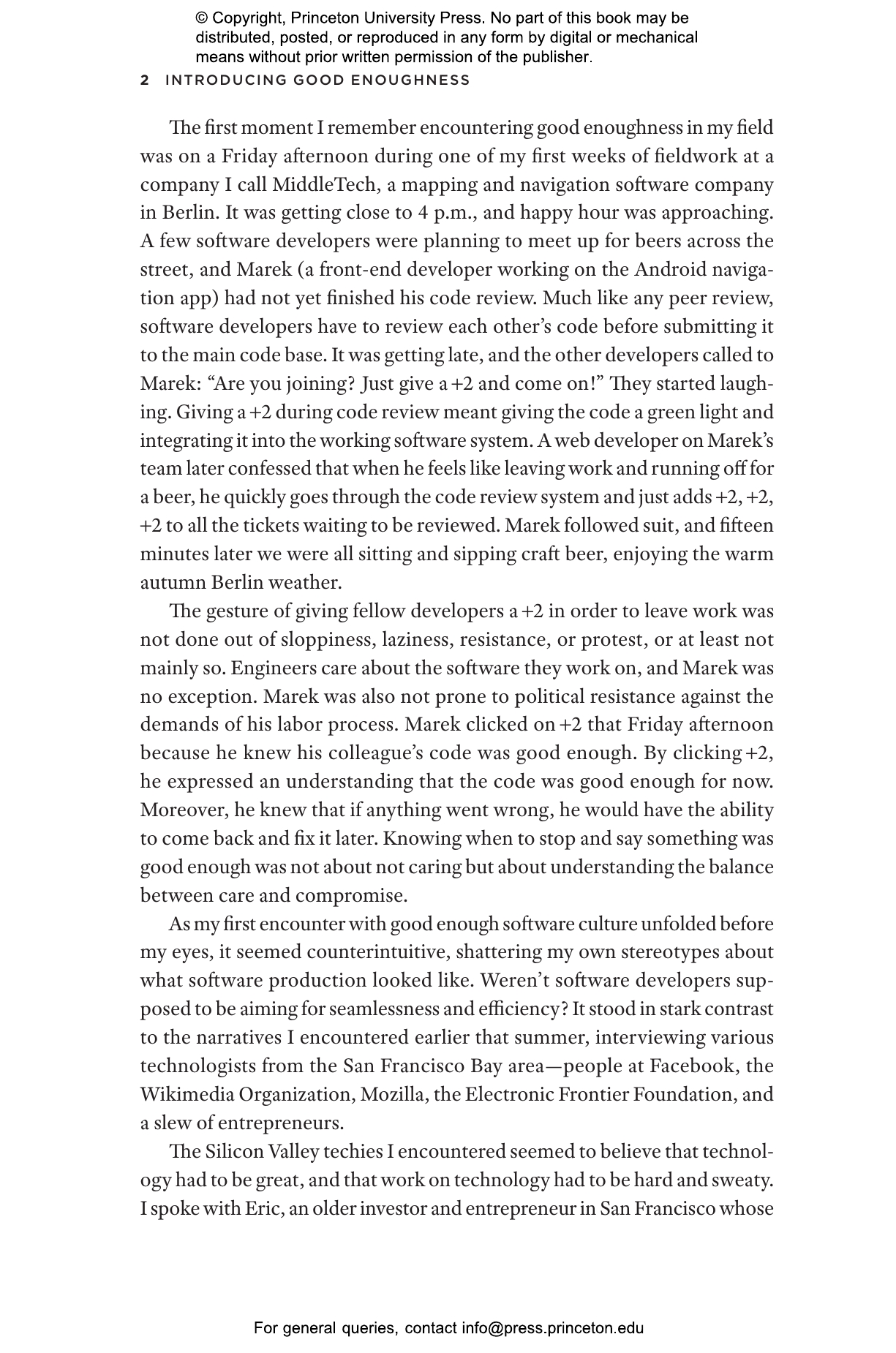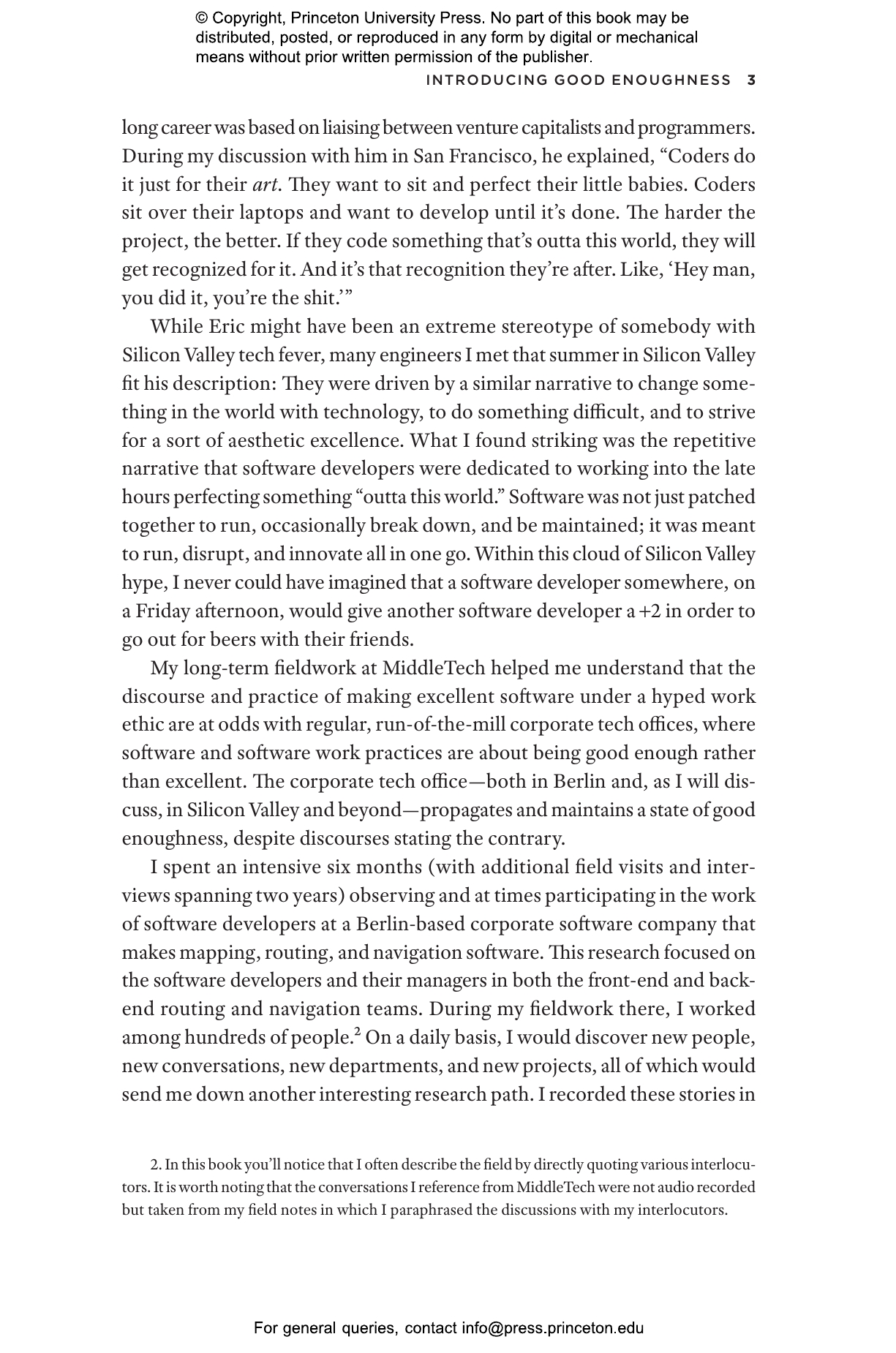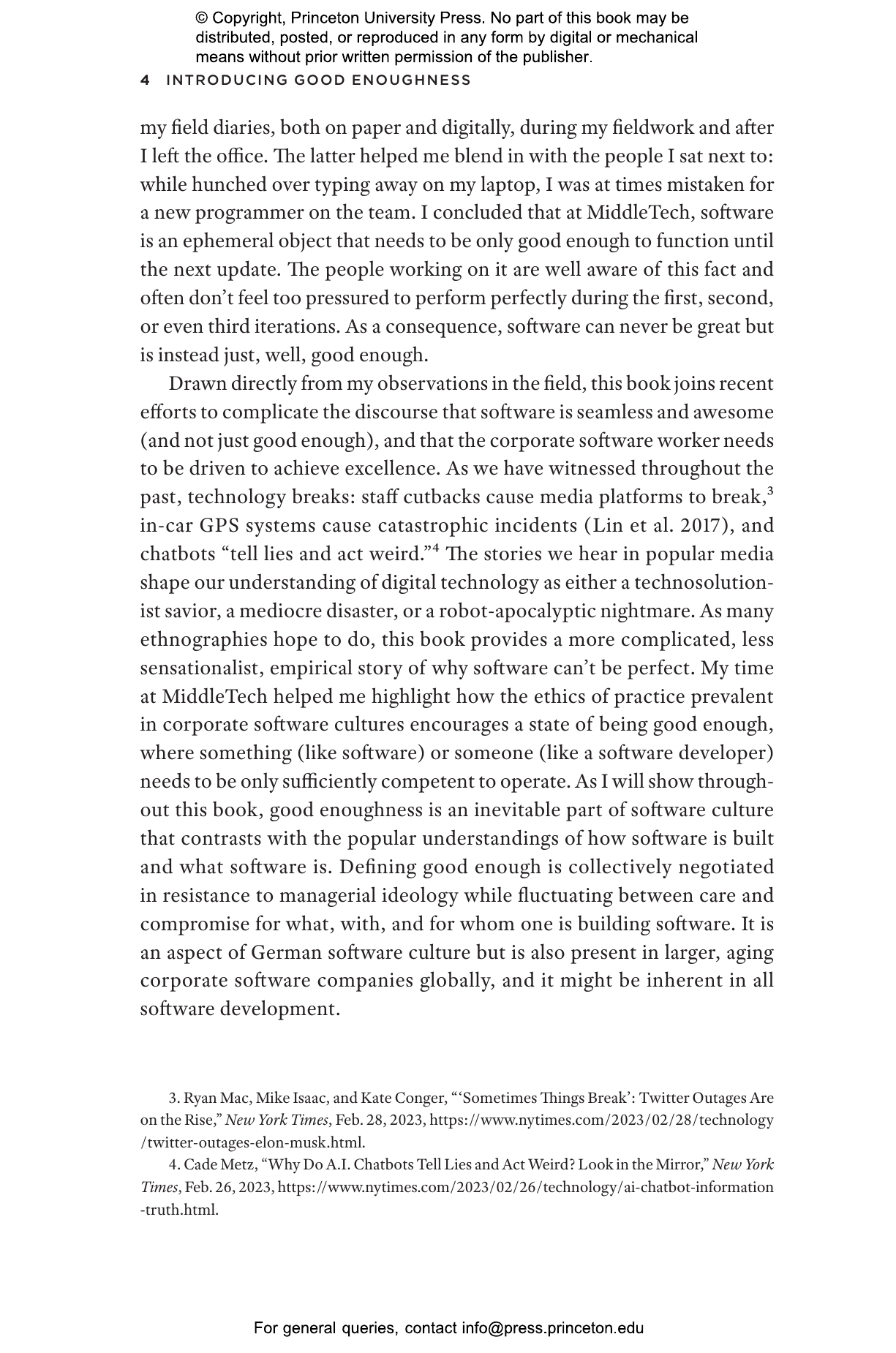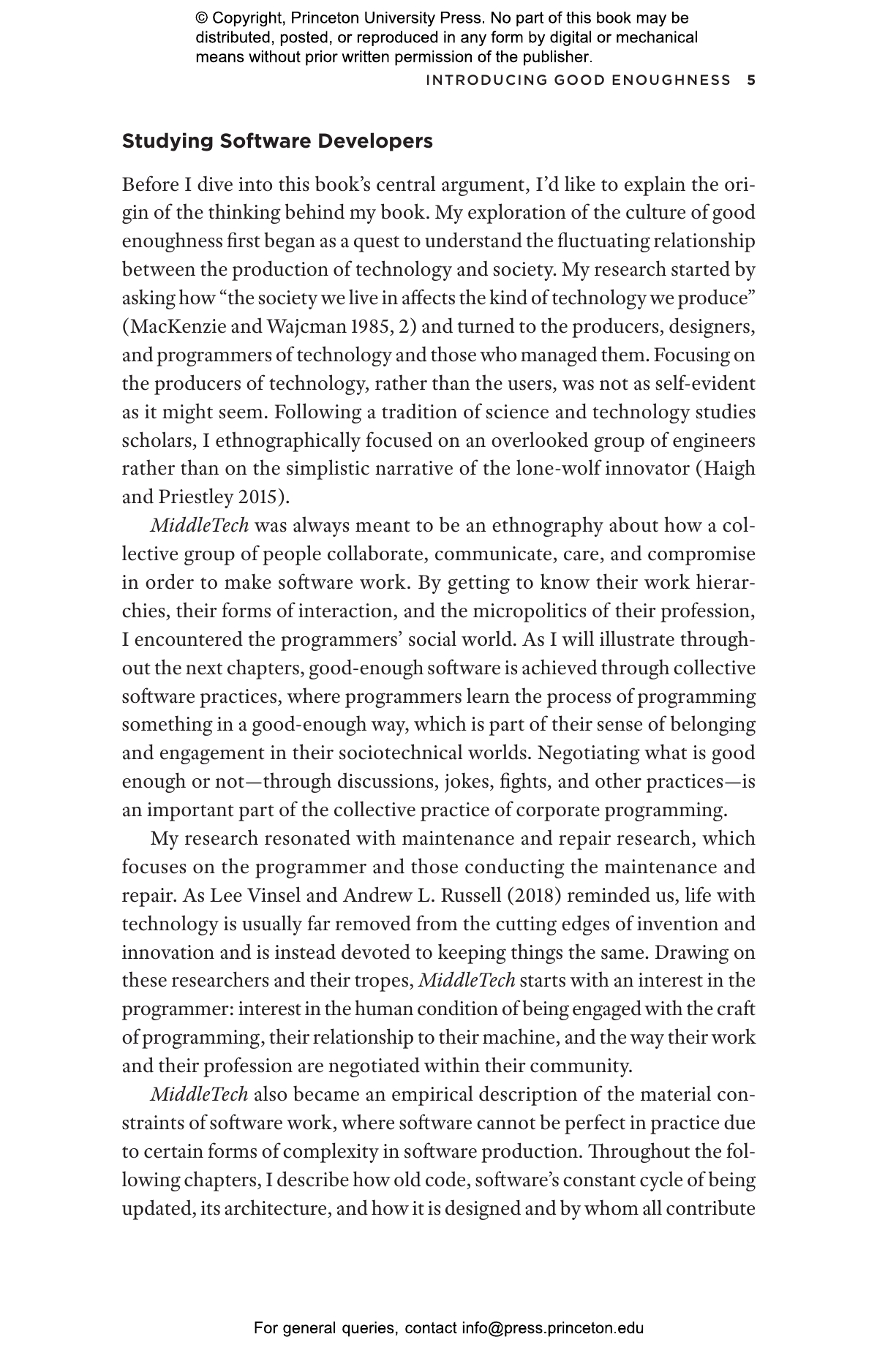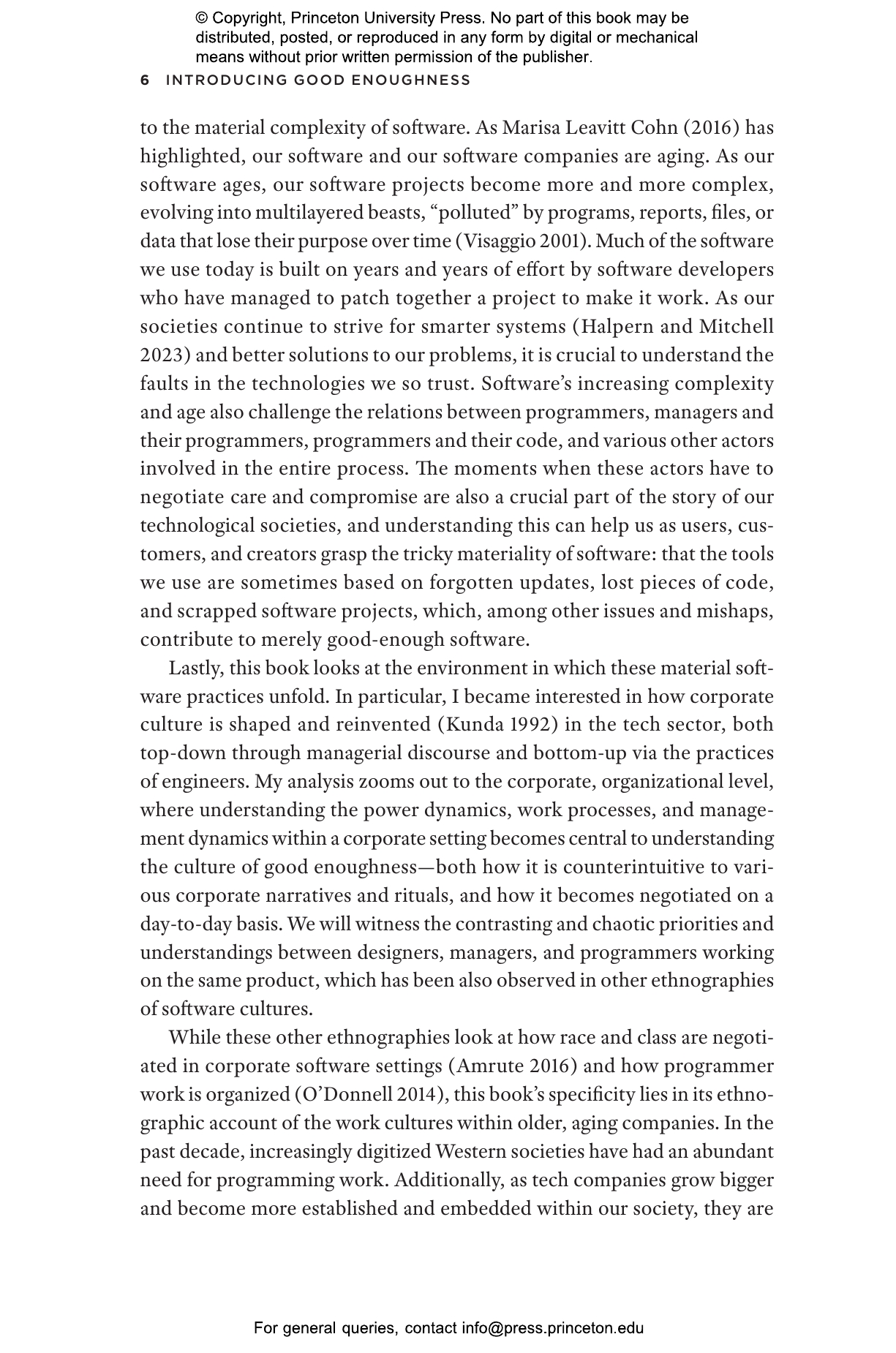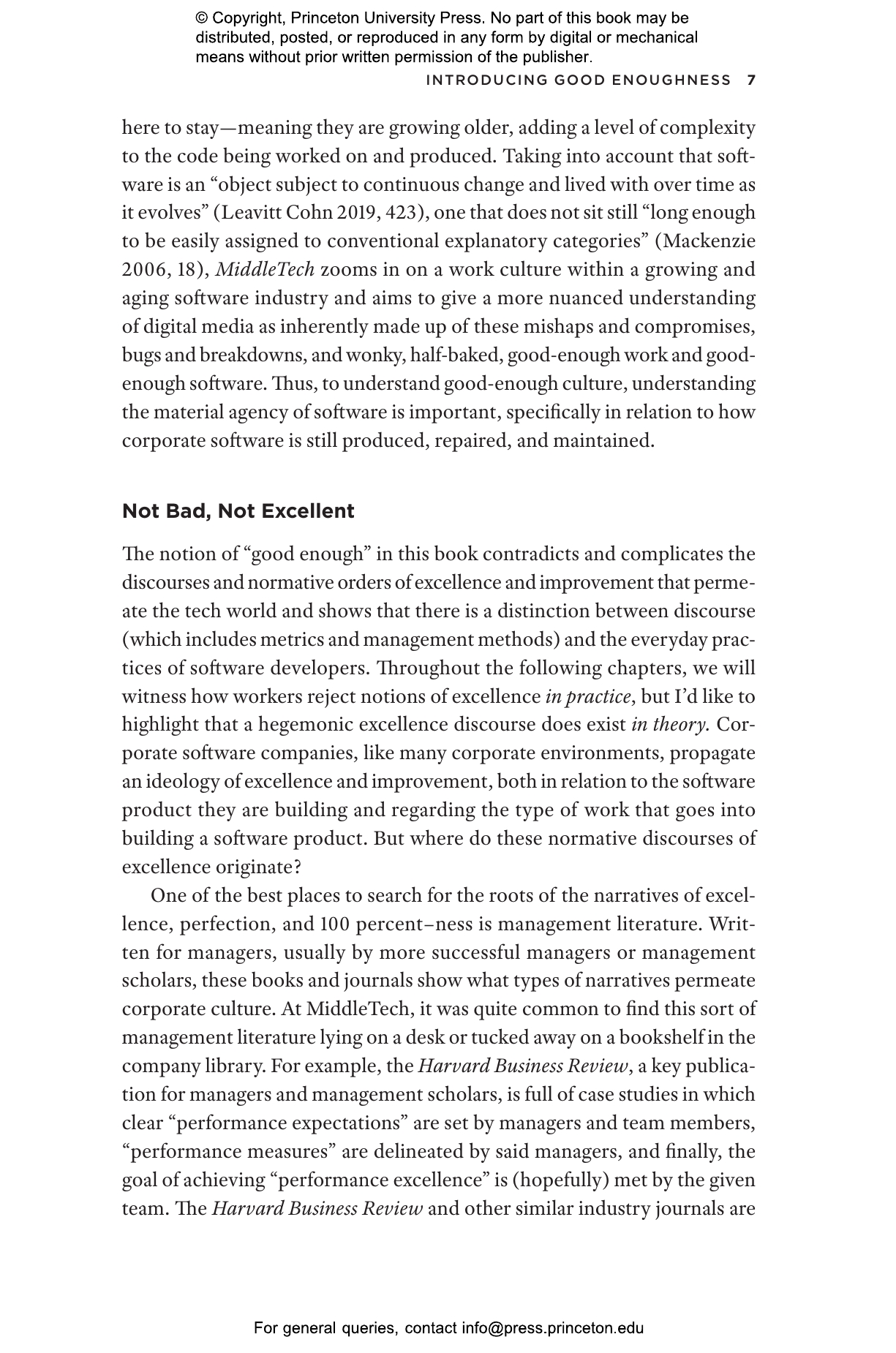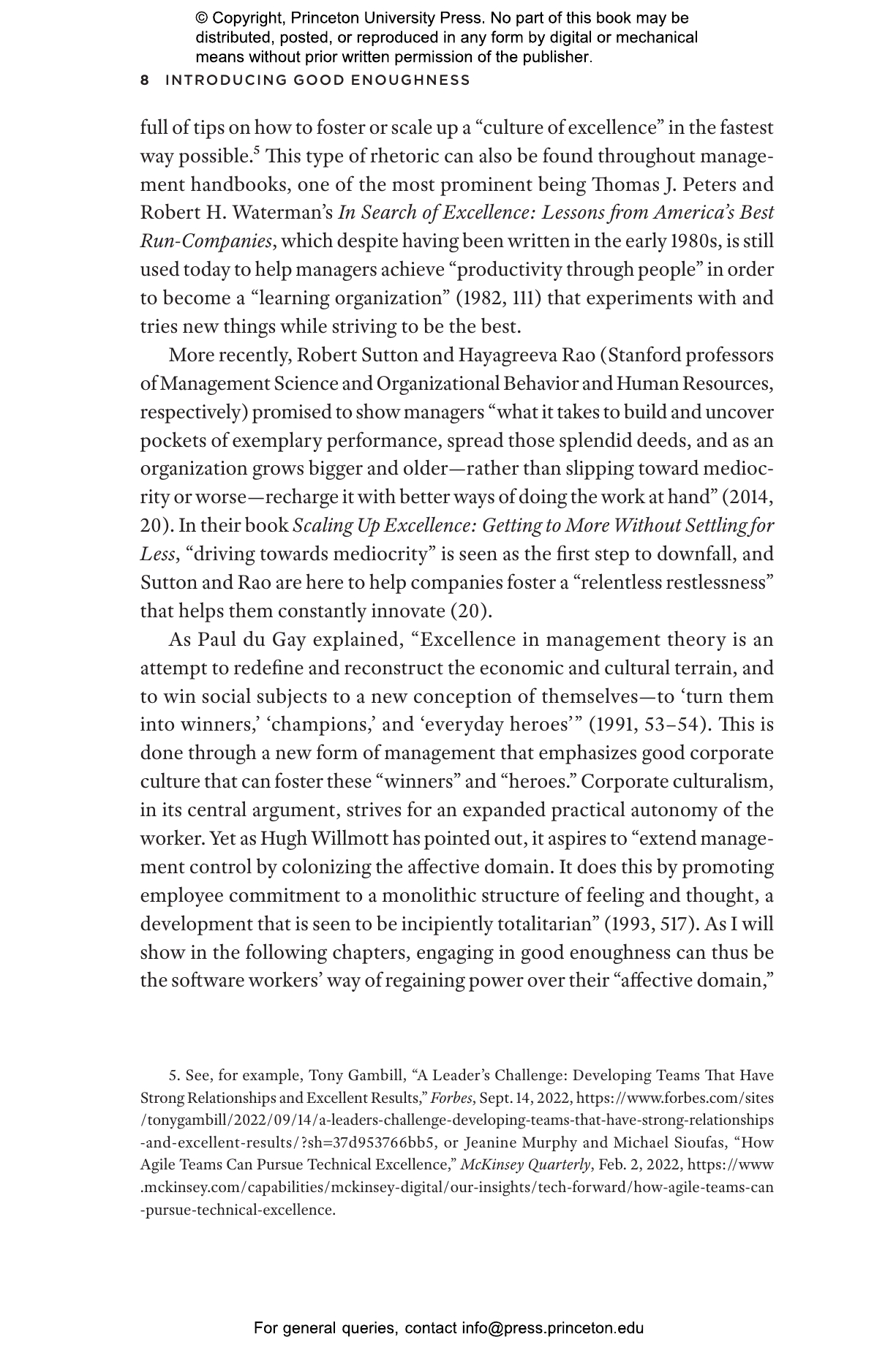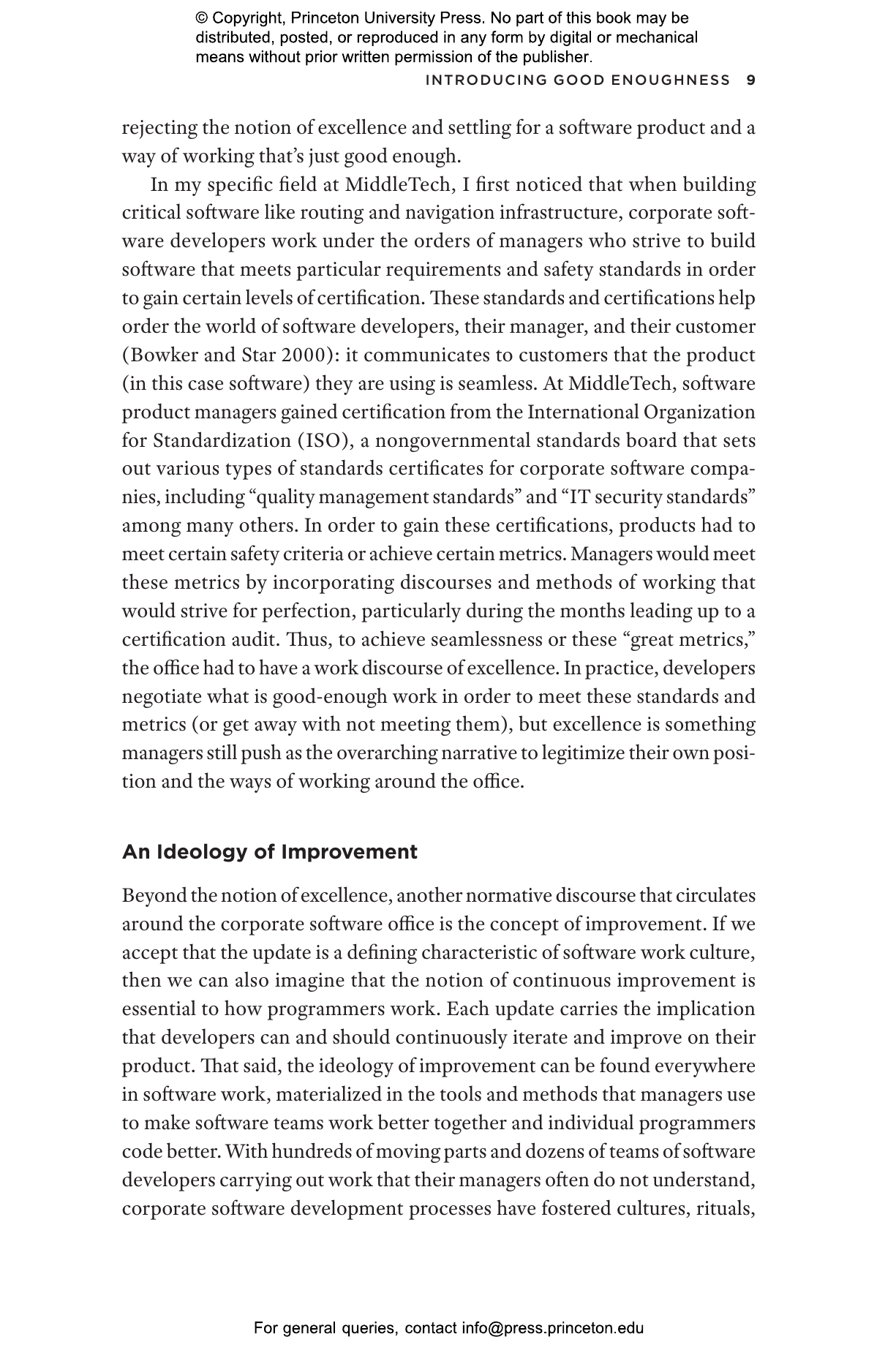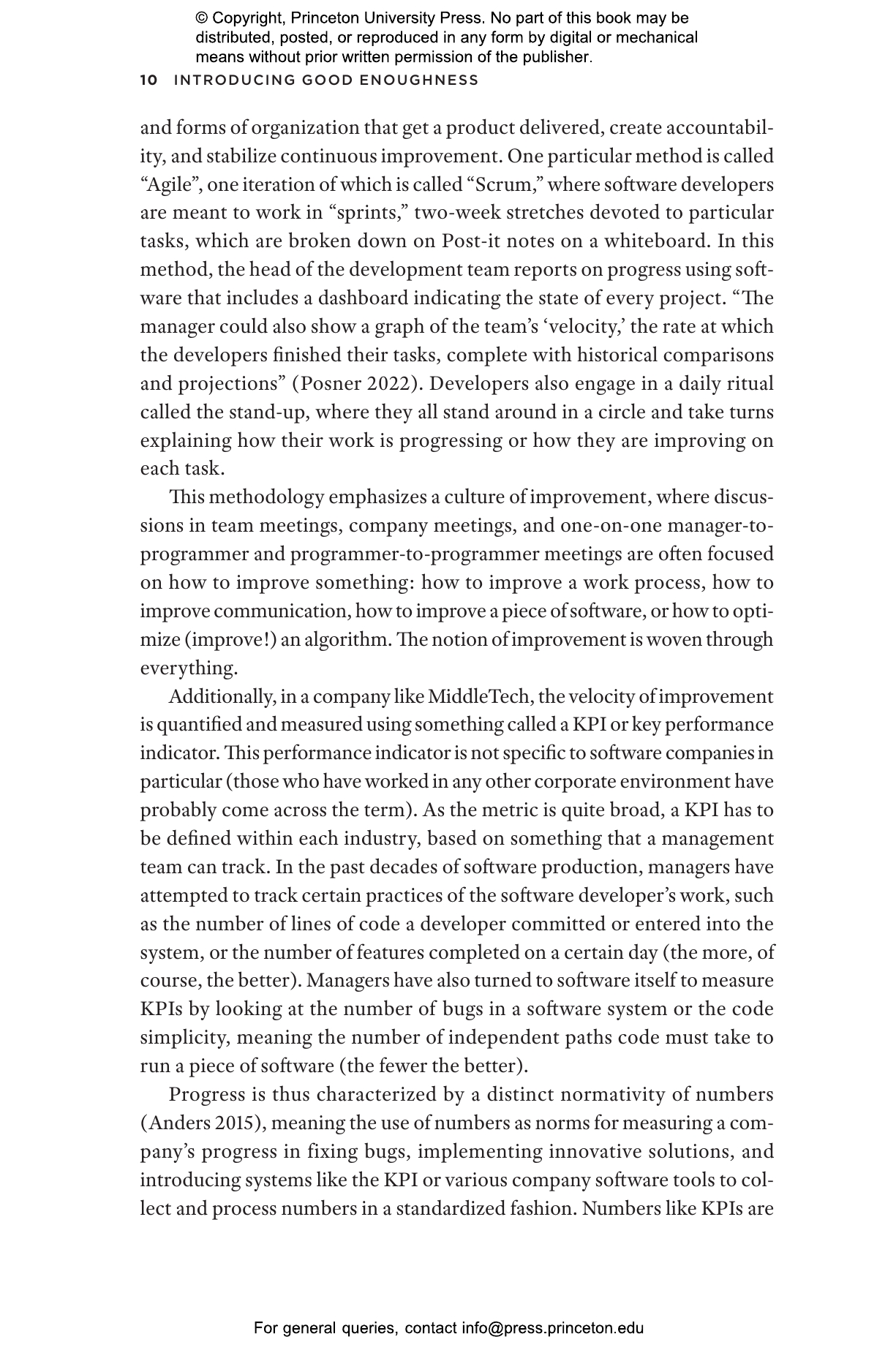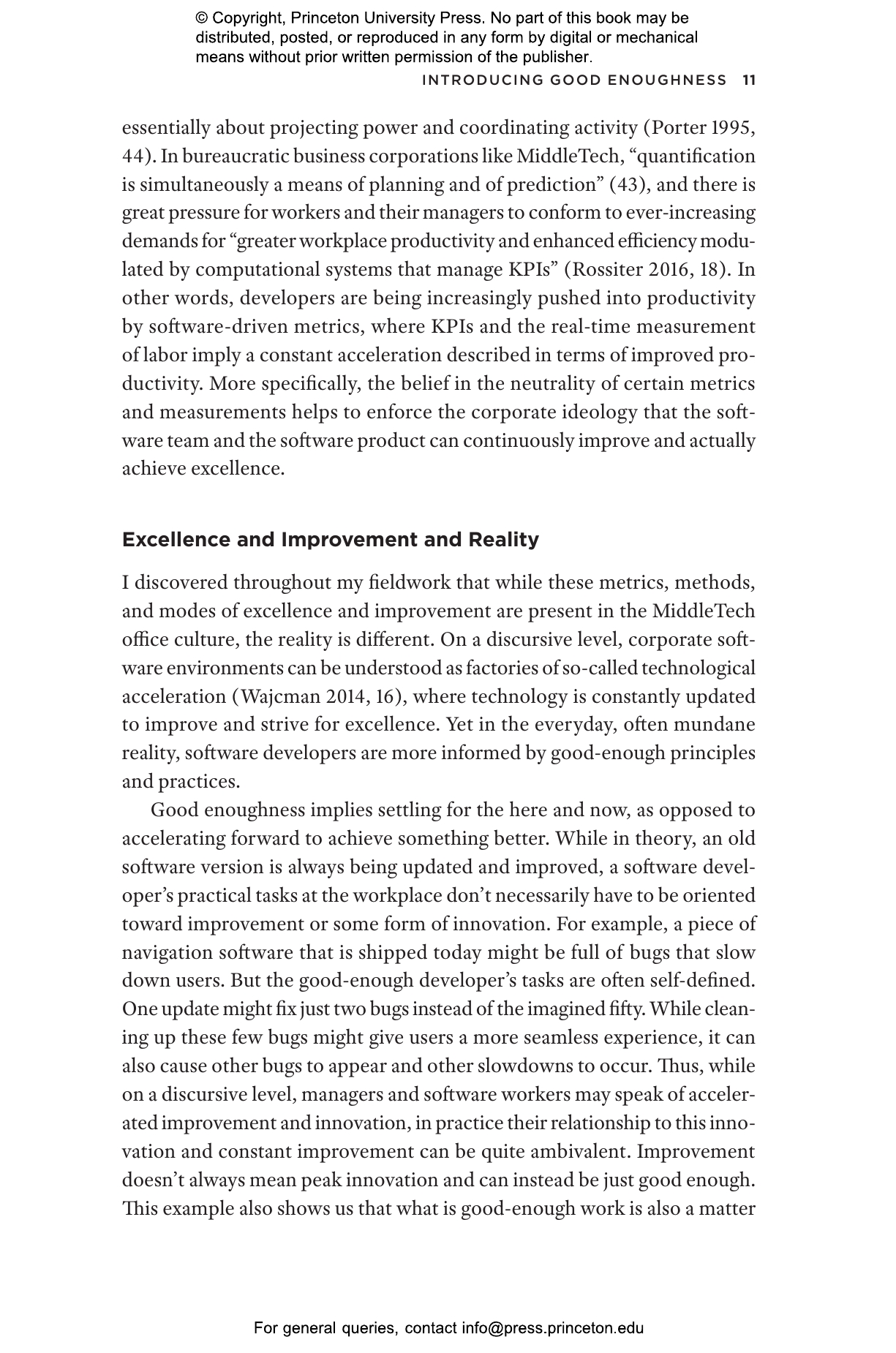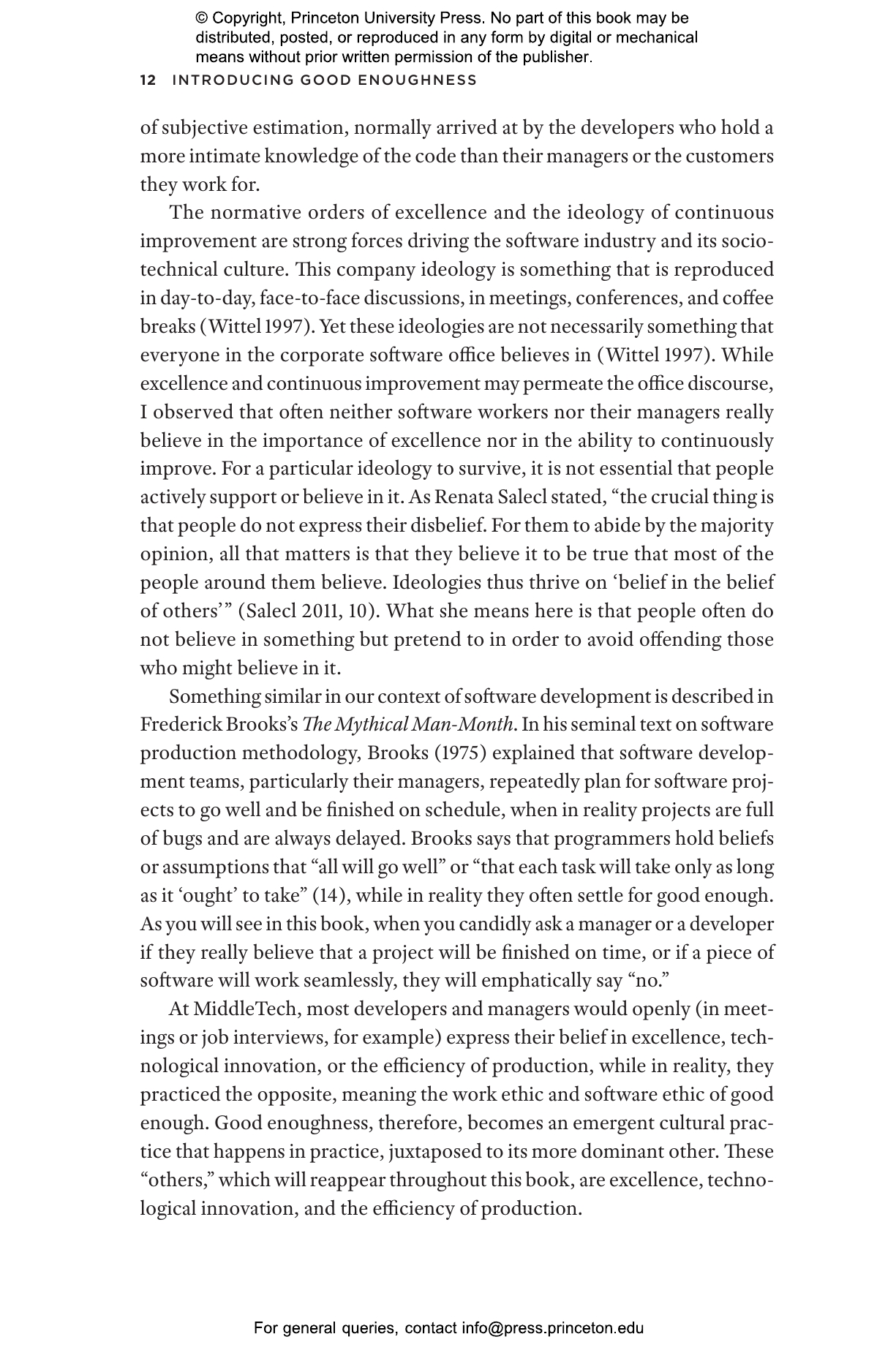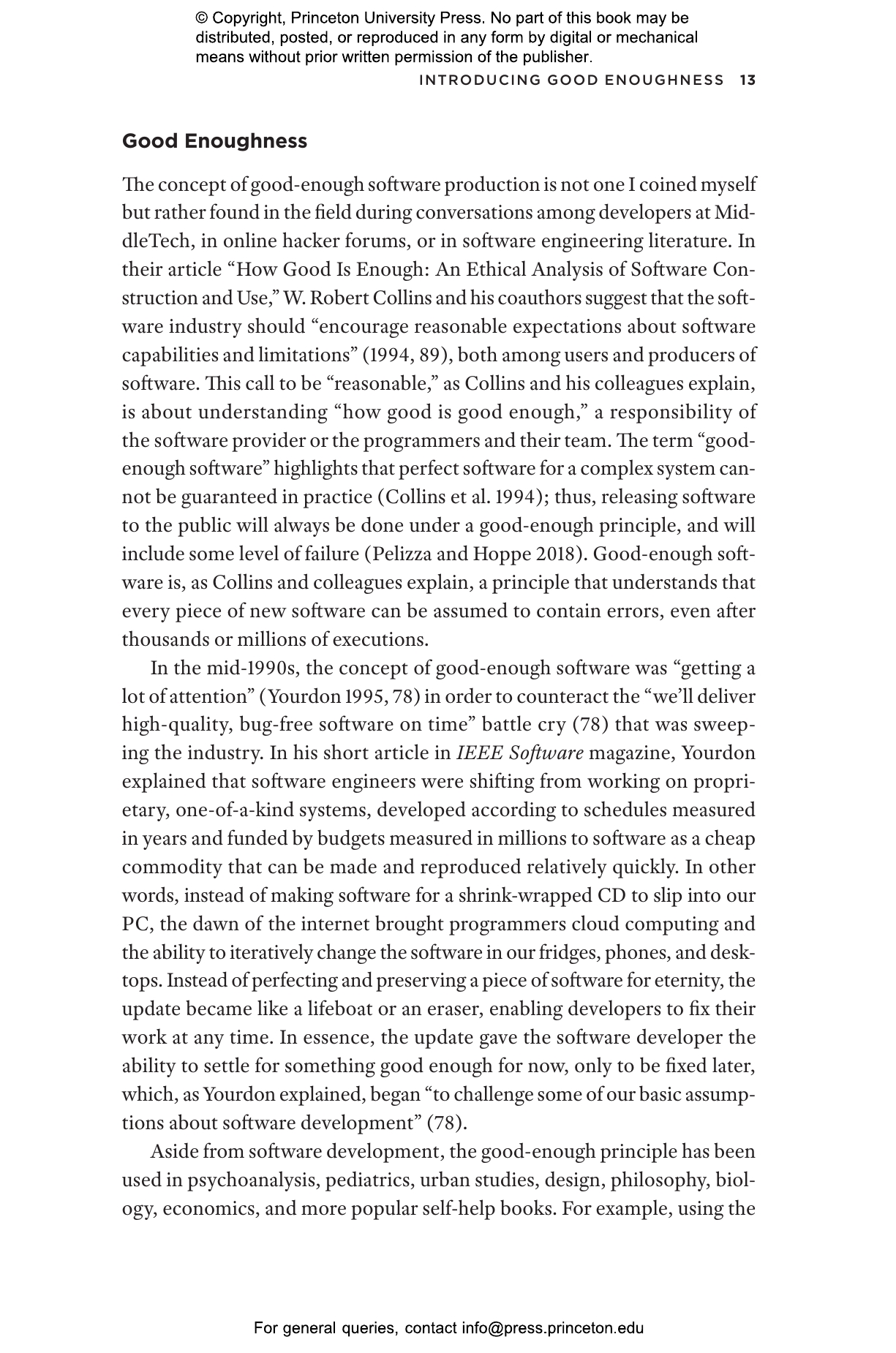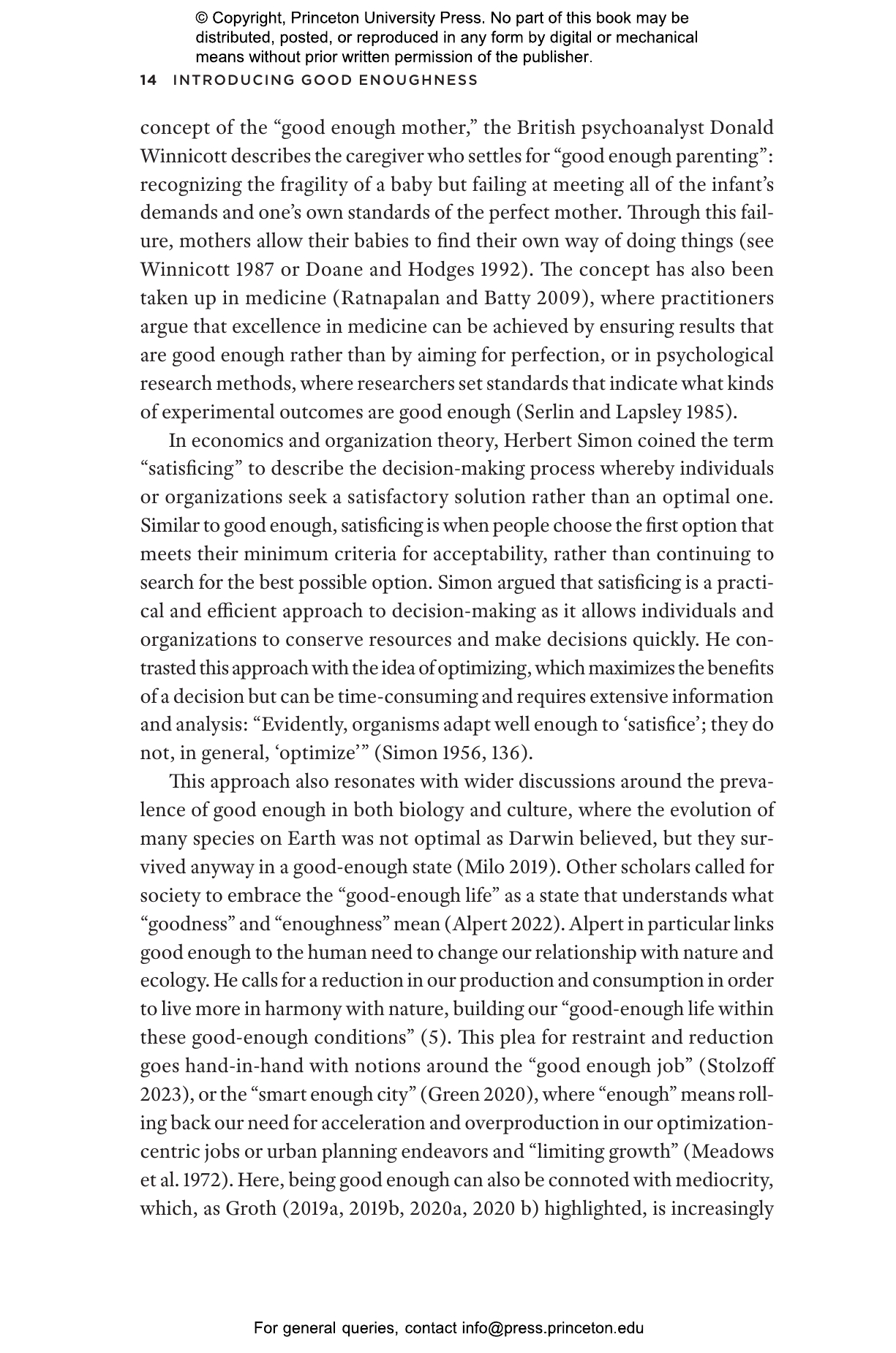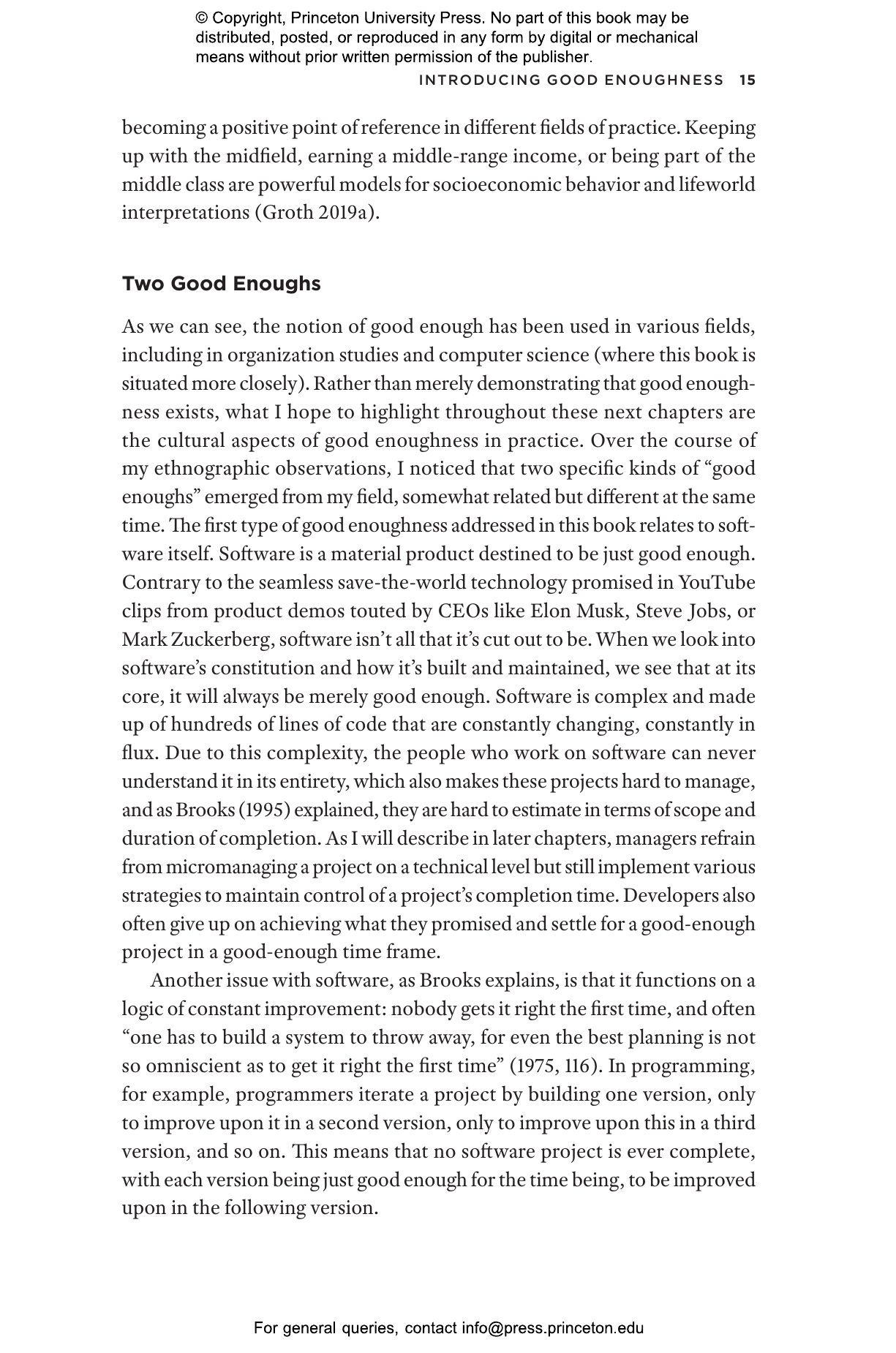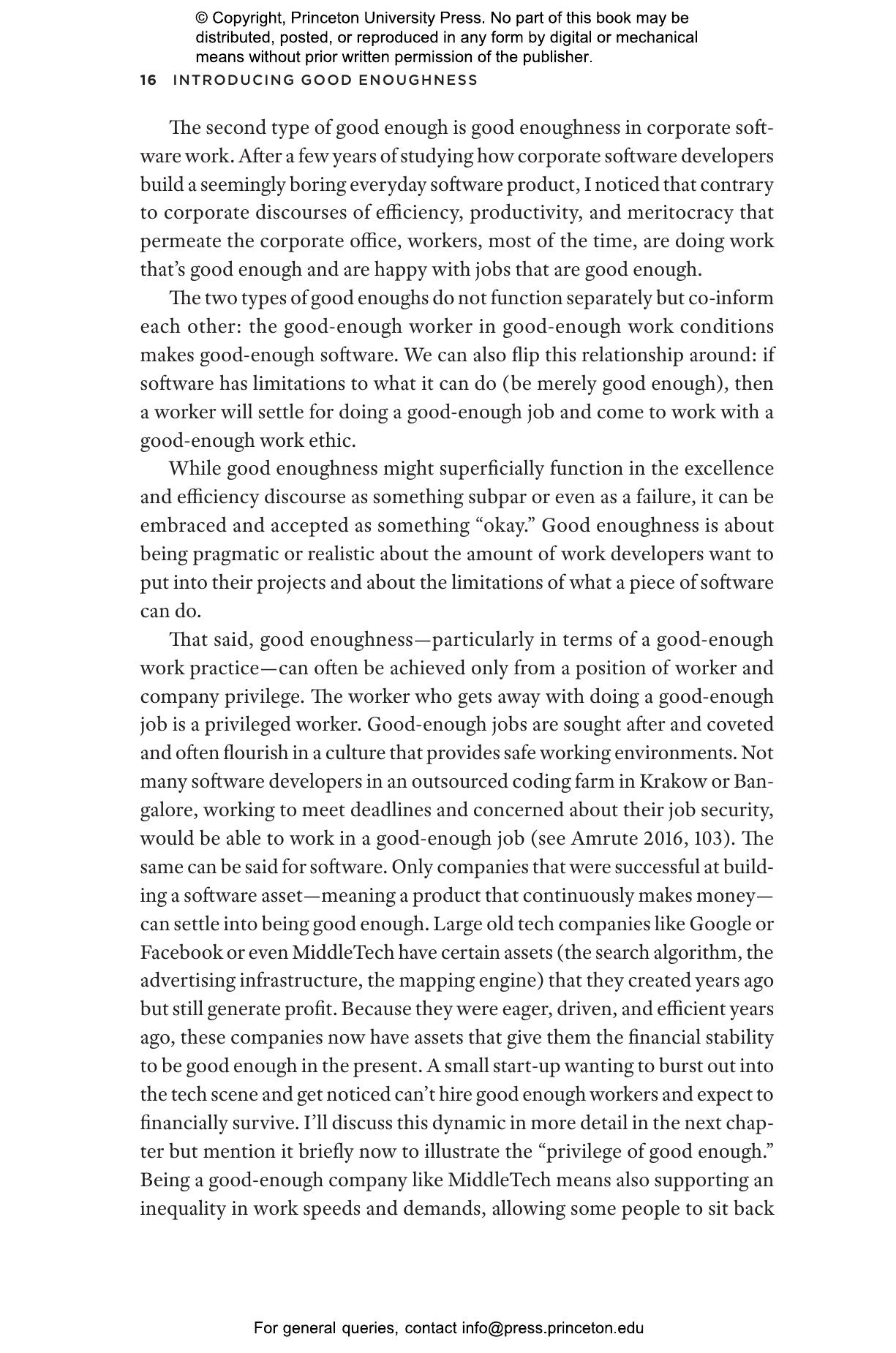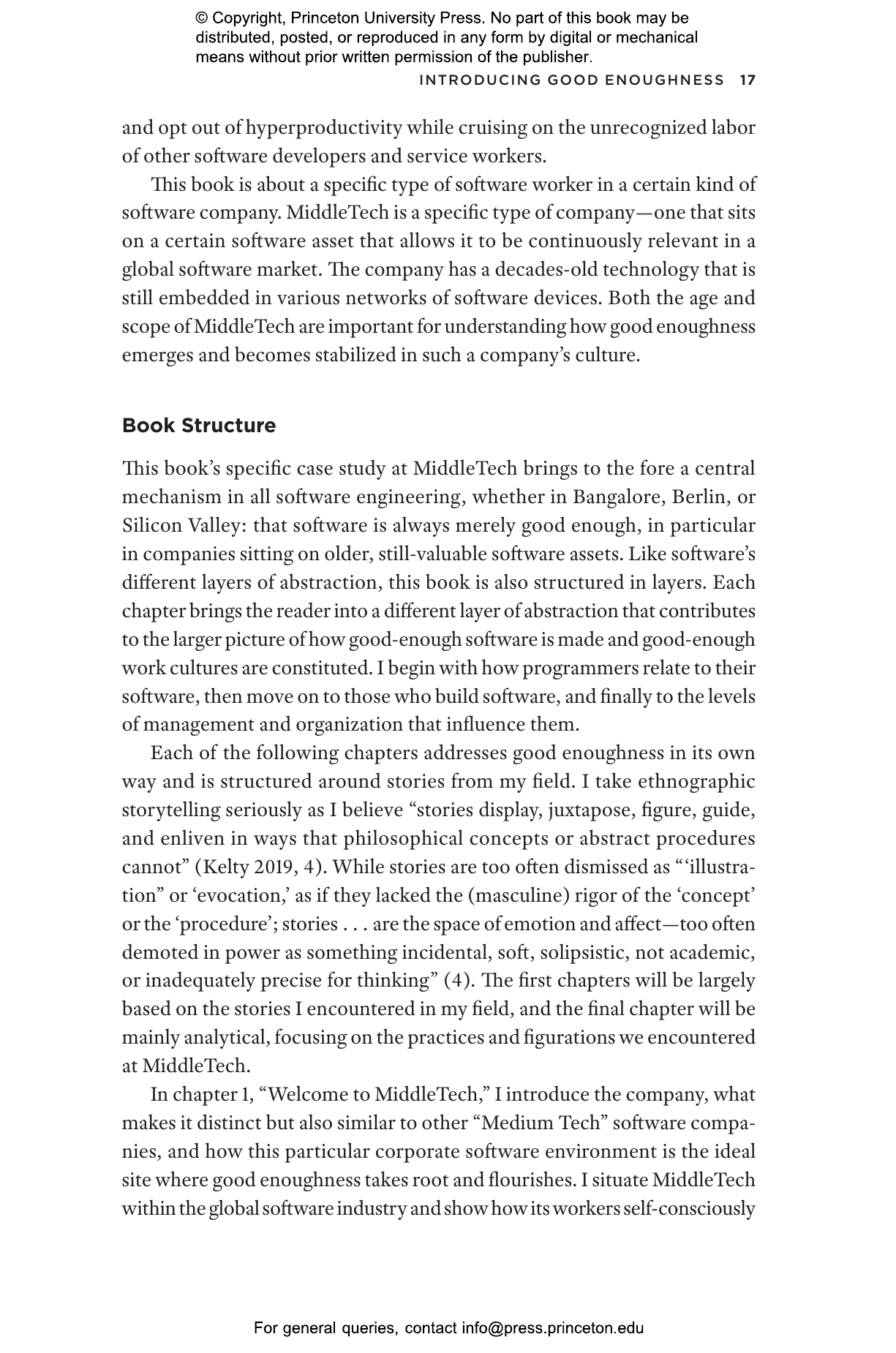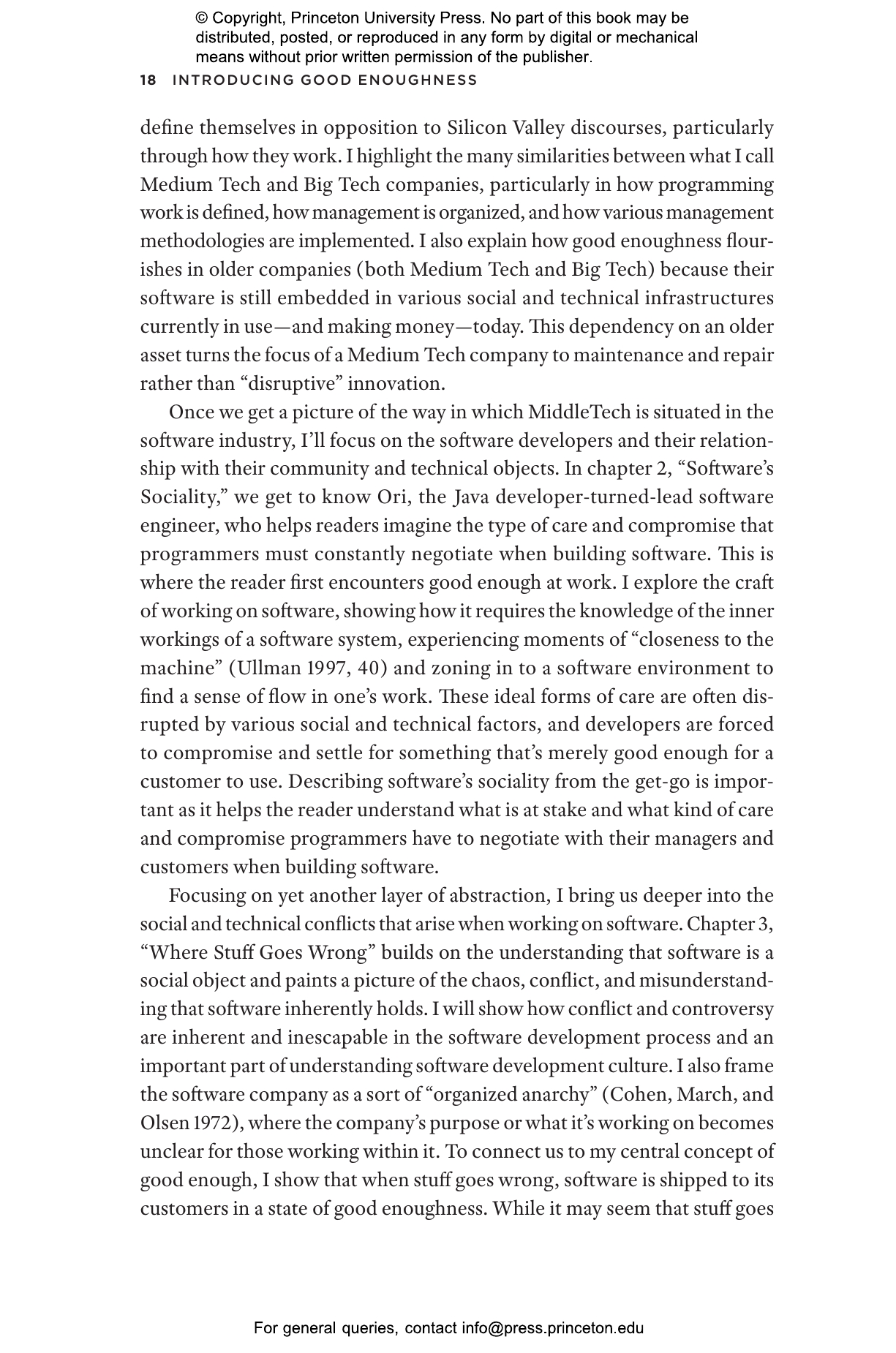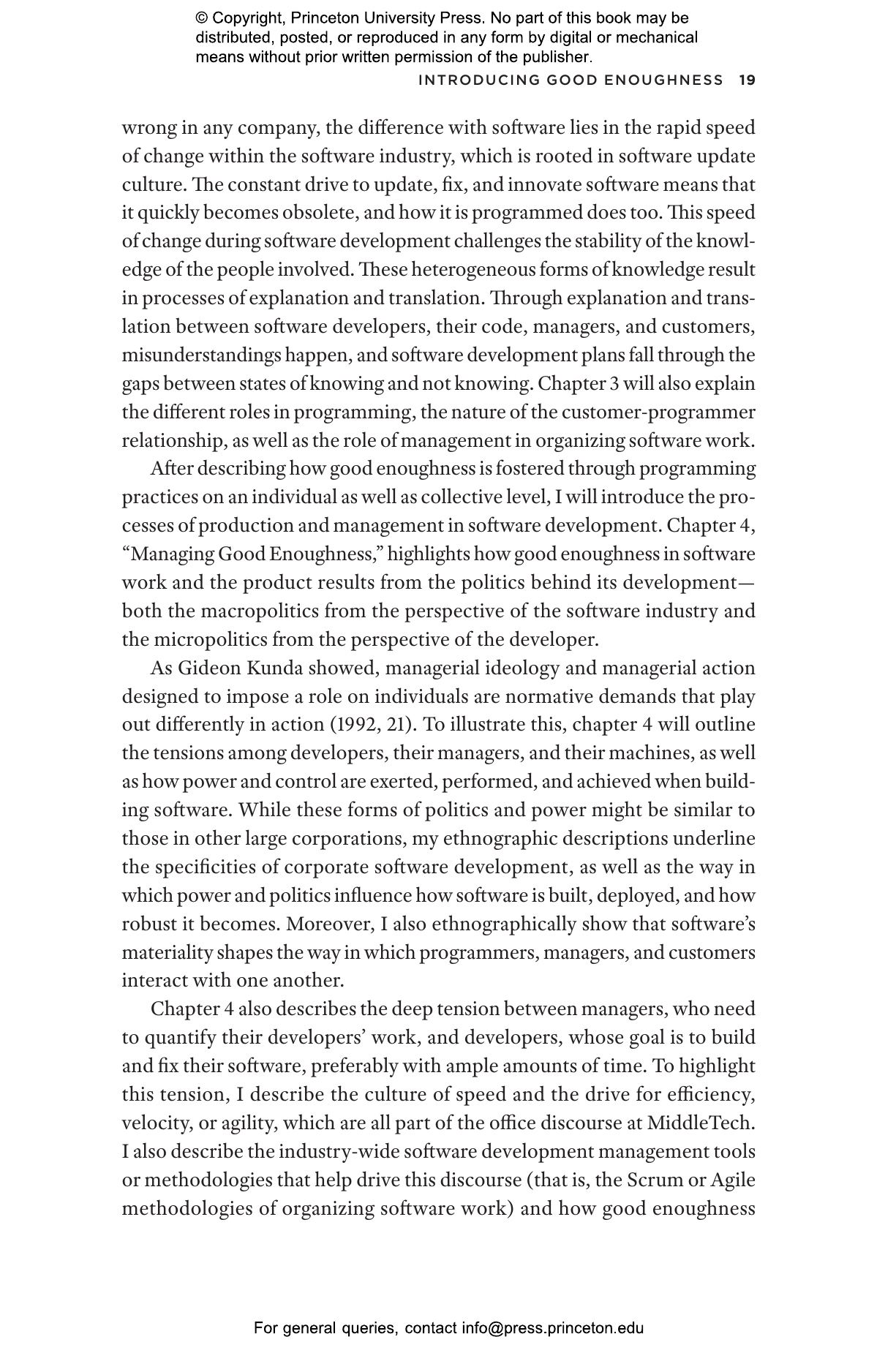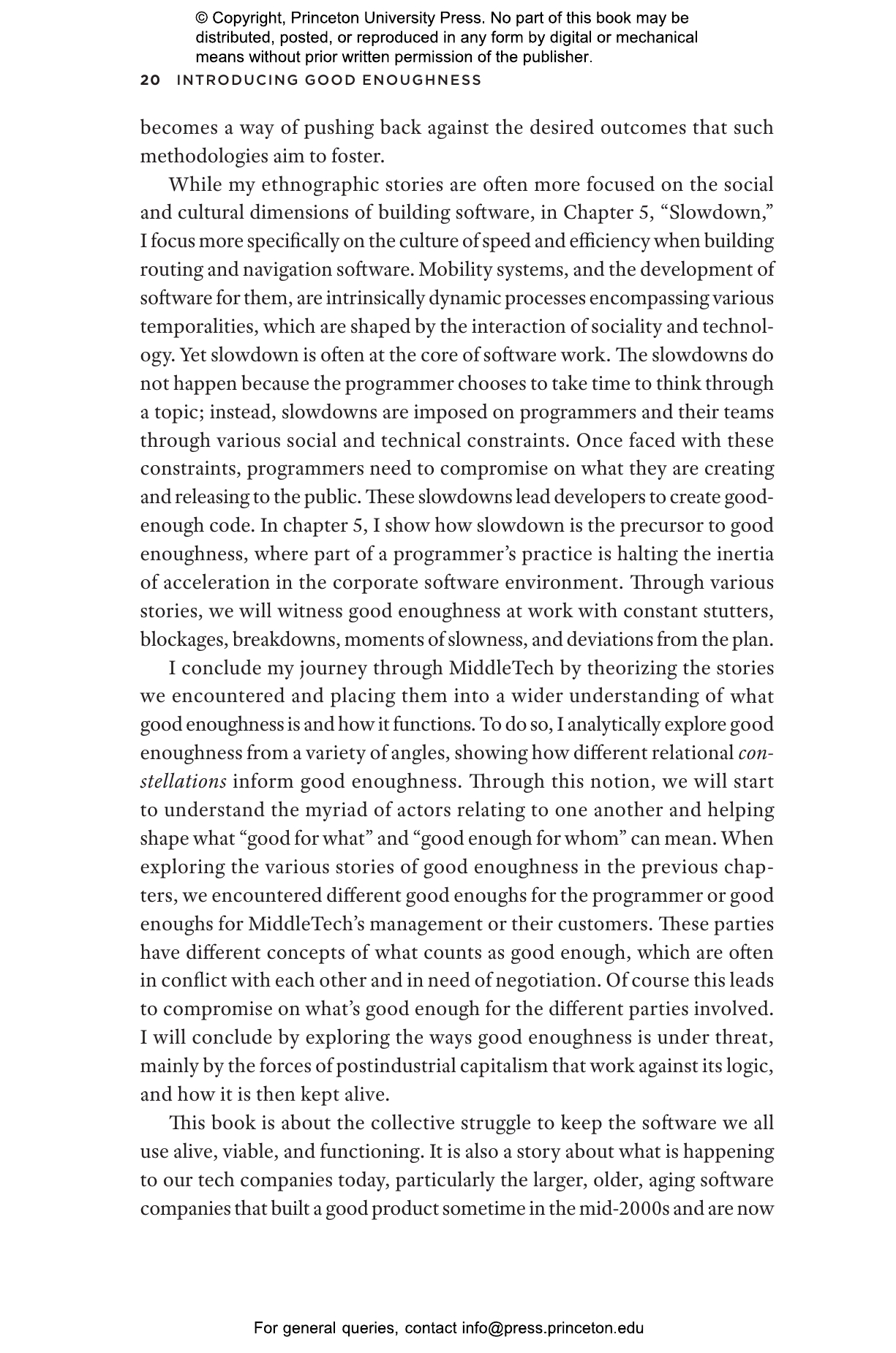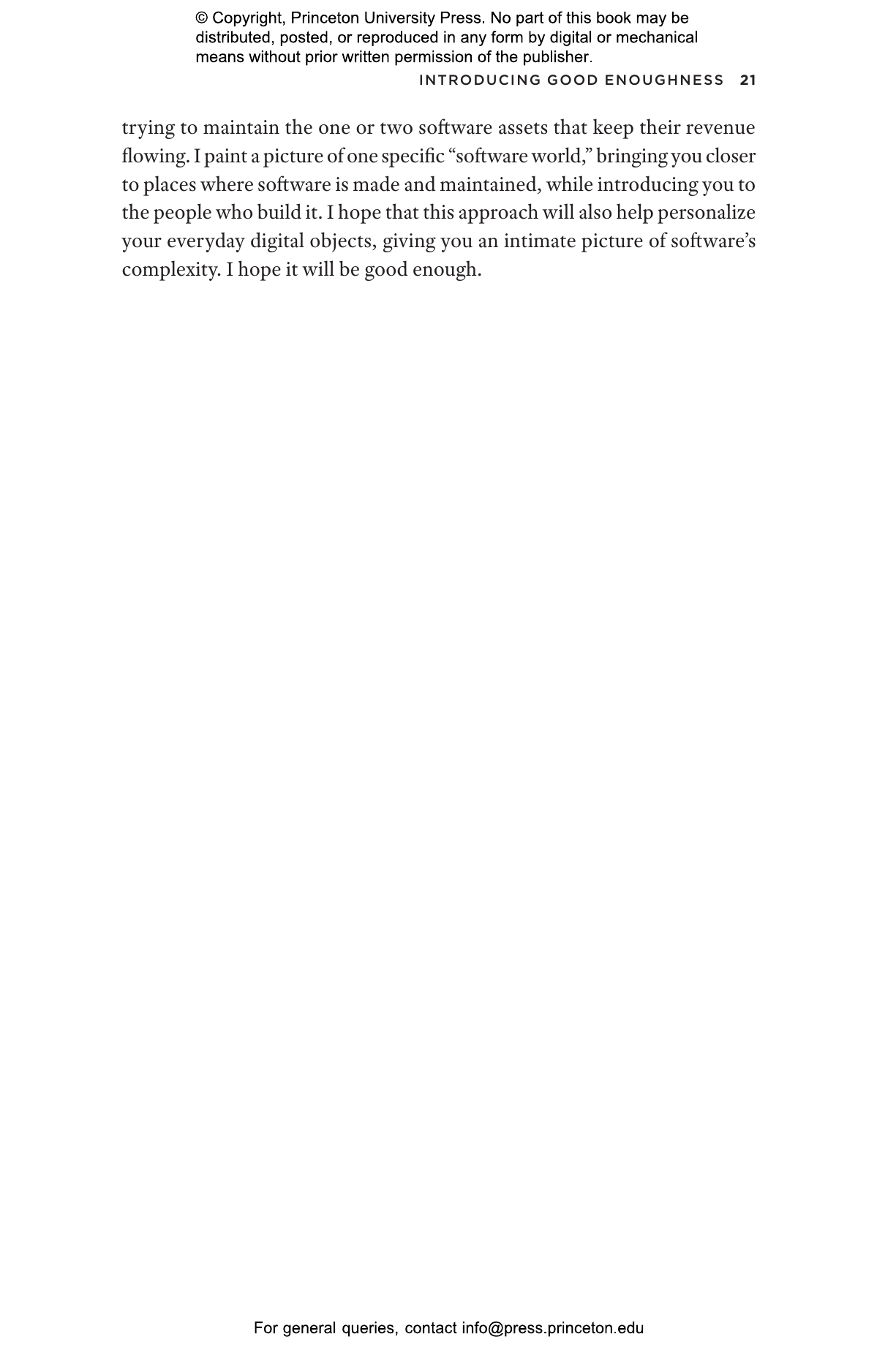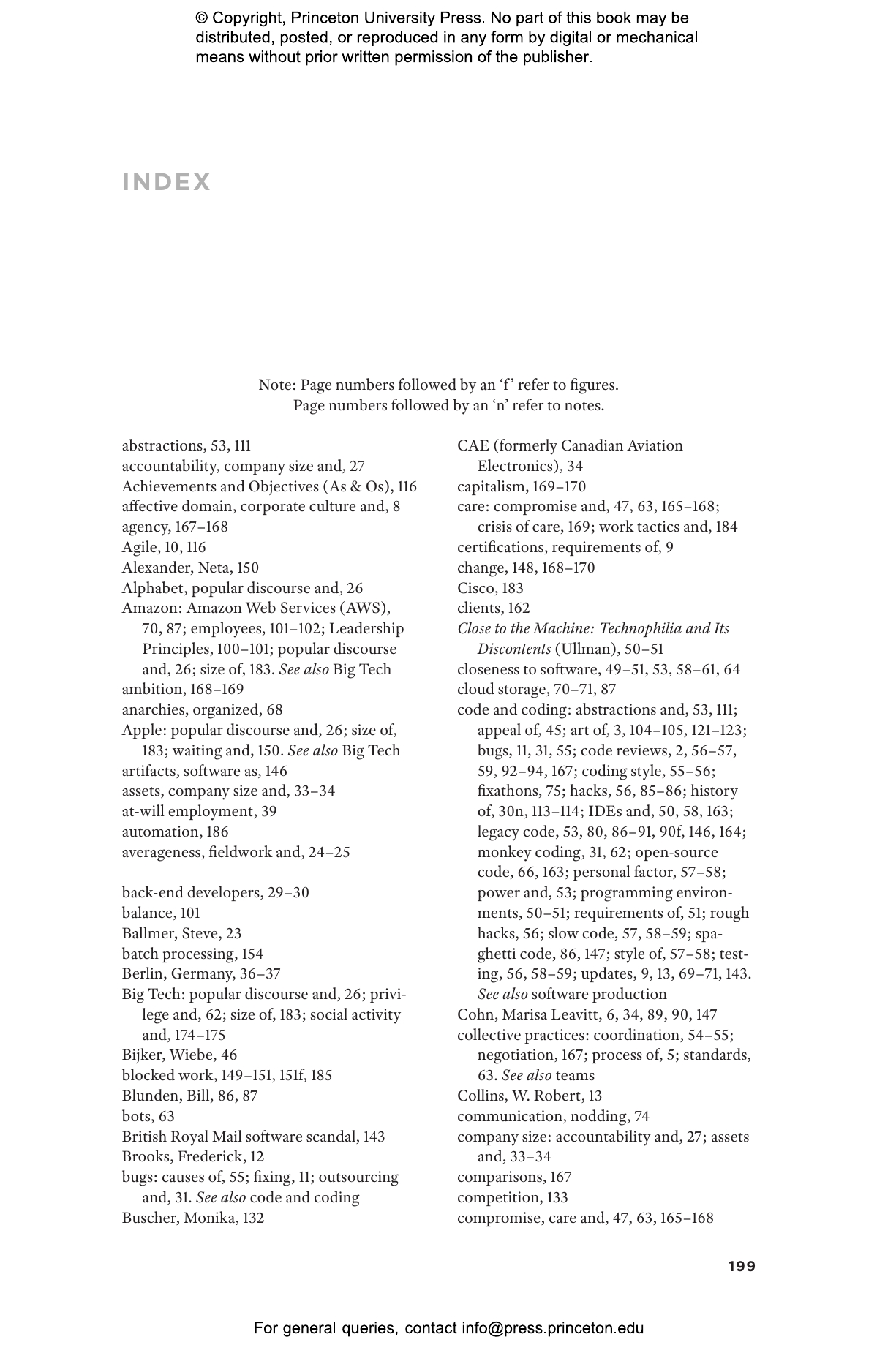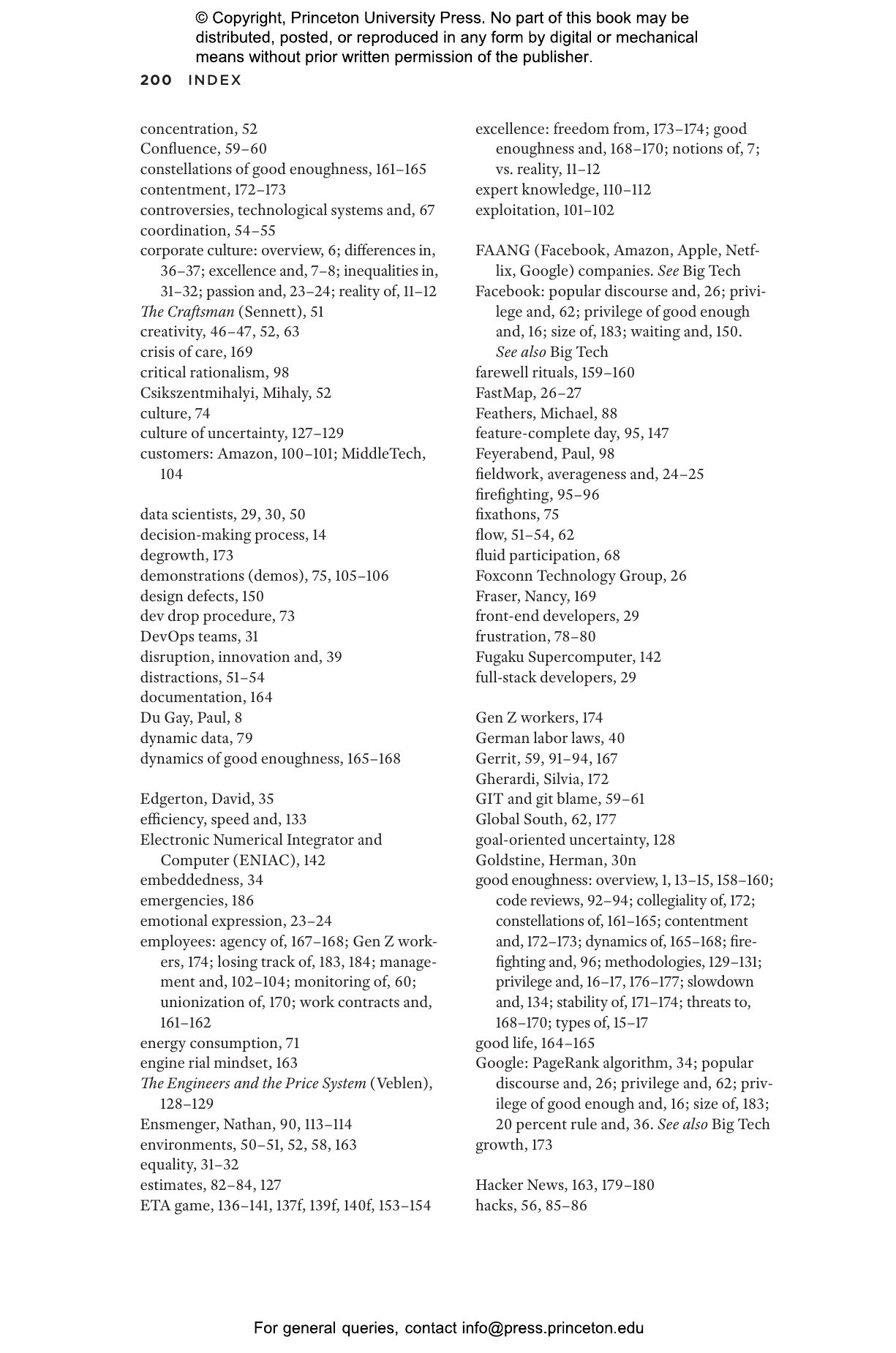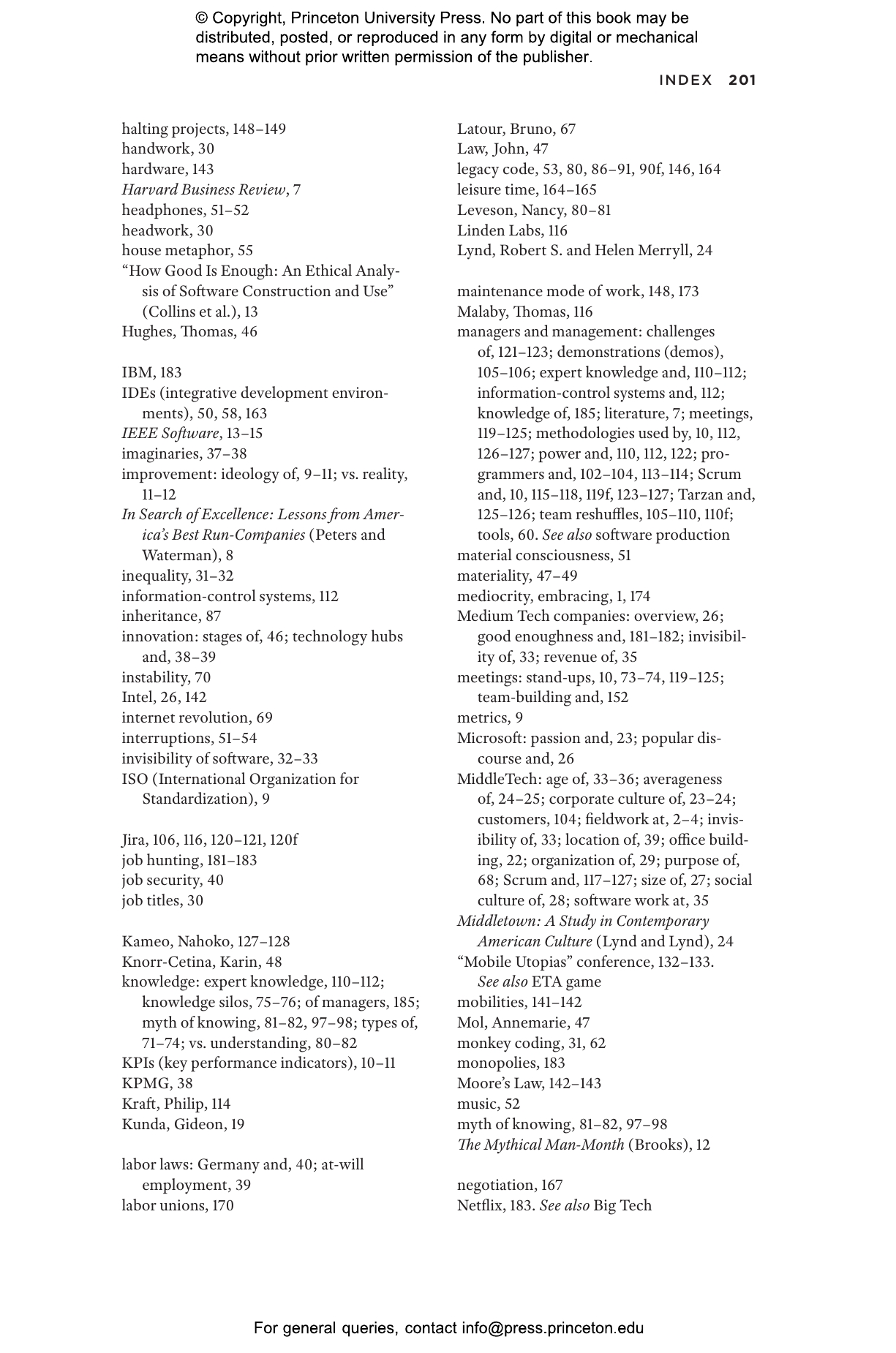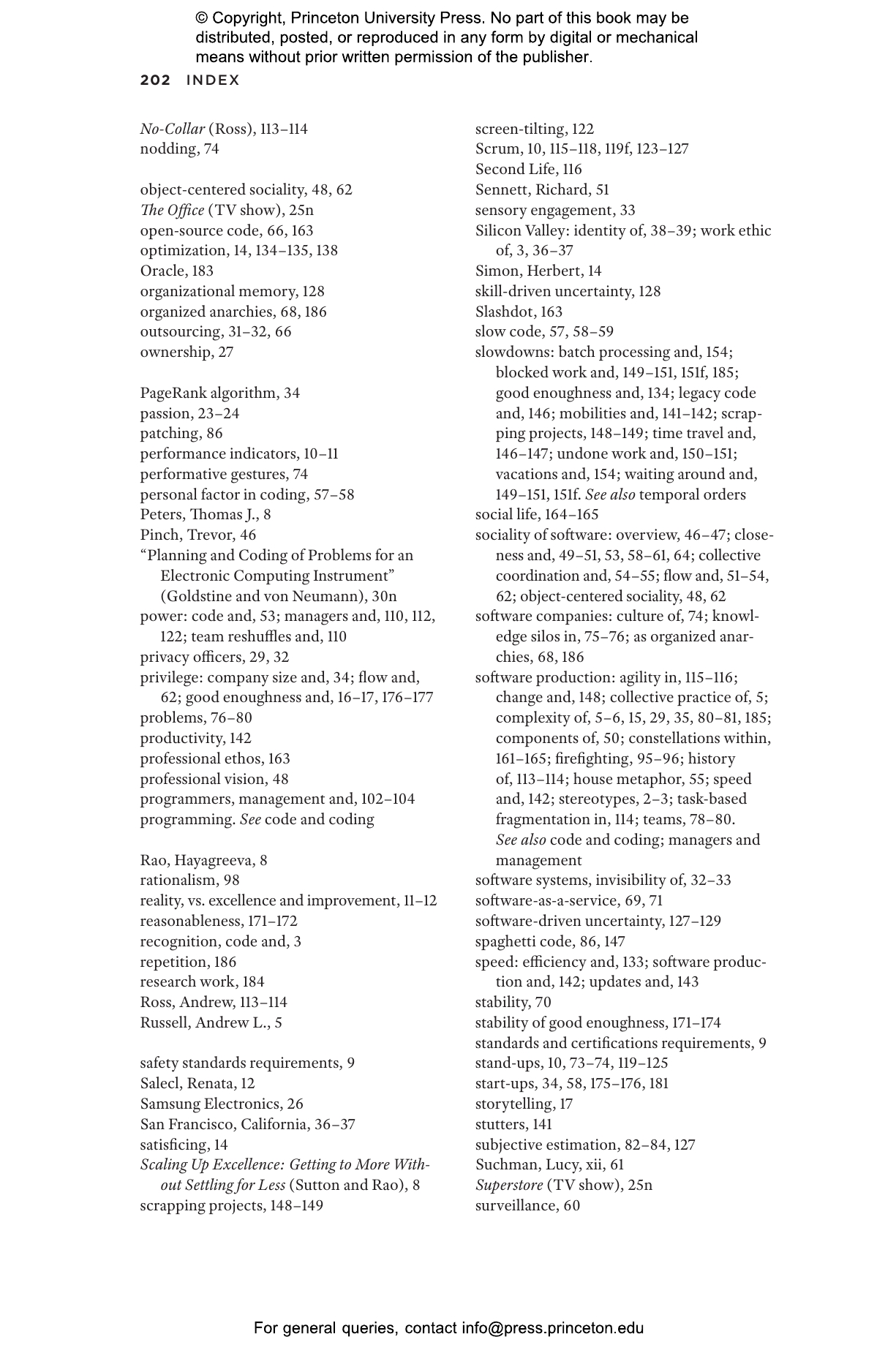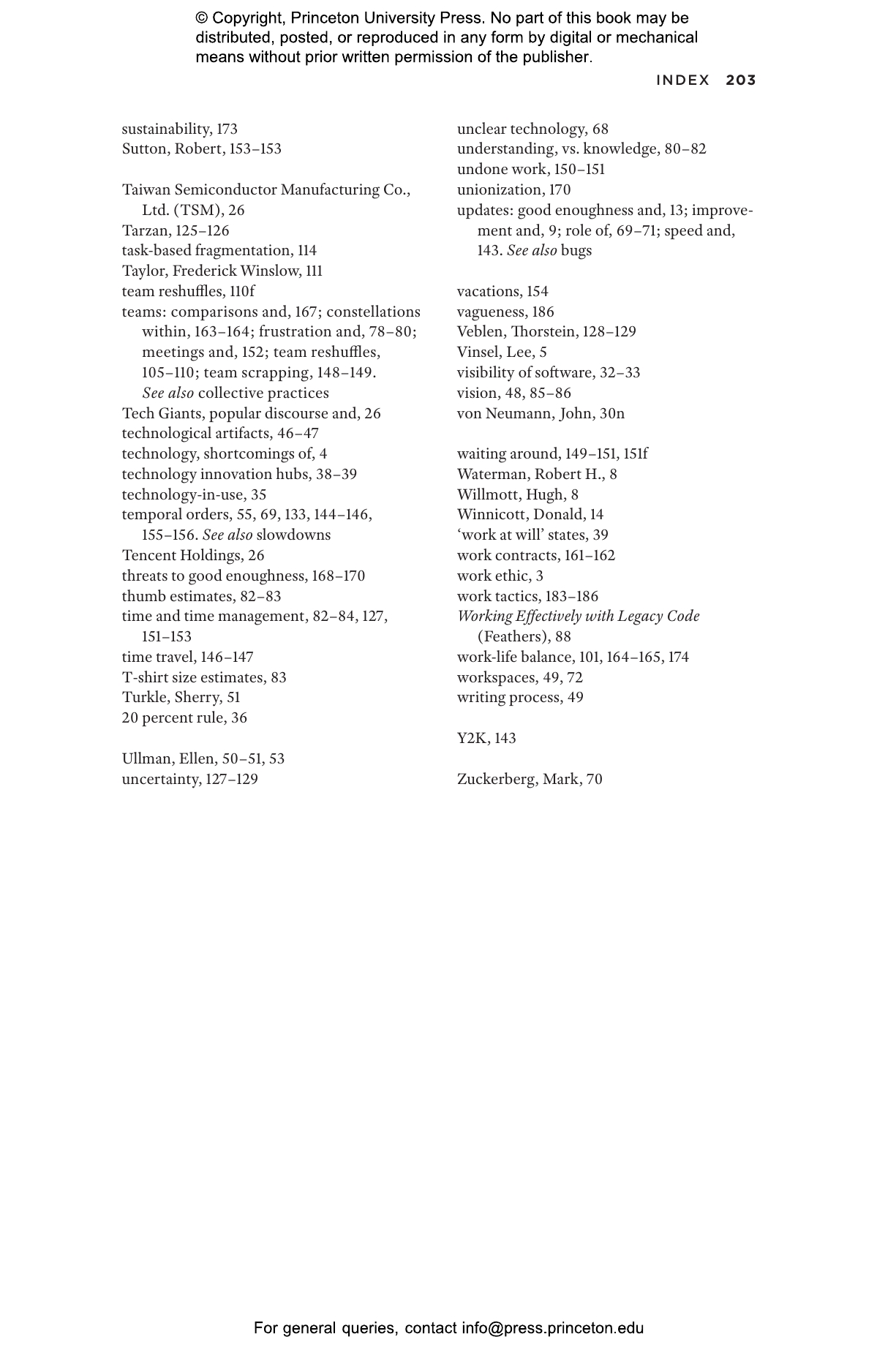Contrary to much of the popular discourse, not all technology is seamless and awesome; some of it is simply “good enough.” In Middle Tech, Paula Bialski offers an ethnographic study of software developers at a non-flashy, non-start-up corporate tech company. Their stories reveal why software isn’t perfect and how developers communicate, care, and compromise to make software work—or at least work until the next update. Exploring the culture of good enoughness at a technology firm she calls “MiddleTech,” Bialski shows how doing good-enough work is a collectively negotiated resistance to the organizational ideology found in corporate software settings.
The truth, Bialski reminds us, is that technology breaks due to human-related issues: staff cutbacks cause media platforms to crash, in-car GPS systems cause catastrophic incidents, and chatbots can be weird. Developers must often labor to patch and repair legacy systems rather than dream up killer apps. Bialski presents a less sensationalist, more empirical portrait of technology work than the frequently told Silicon Valley narratives of disruption and innovation. She finds that software engineers at MiddleTech regard technology as an ephemeral object that only needs to be good enough to function until its next iteration. As a result, they don’t feel much pressure to make it perfect. Through the deeply personal stories of people and their practices at MiddleTech, Bialski traces the ways that workers create and sustain a complex culture of good enoughness.
Paula Bialski is associate professor of digital sociology at the University of St. Gallen in St. Gallen, Switzerland. She is the author of Becoming Intimately Mobile and a coauthor of Communication.
32791
"[Middle Tech] proves indispensable for demonstrating how the mundane but nevertheless consequential choices inside AI companies, indeed in all software companies, are made by engineers as they navigate the material and ethical stakes of what is 'good enough' and who it is good enough for in their daily work."—Emanuel Moss, Public Books
"A most welcome addition to the sociology of work, organizations, and occupations and an important contribution to readers' understanding ofthe creation, change, and maintenance of workplace culture."—Choice
“A sharp-eyed exploration of everyday life in the trenches of tech, far from the magic sparkle of billionaire CEOs and the cries of their techlash antagonists. This book is a welcome antidote to our cycles of hype and despair.”—Fred Turner, Stanford University
“While so much popular and academic writing has focused on hacker-techies or Silicon Valley entrepreneurs, we seldom have research on the everyday, mundane, often boring-at-first-glance software developers that code and maintain the growing mess of our day-to-day software systems. Bialski’s intimate and rich portrayal of Middle Tech developers is innovatively conceptualized, deeply researched, and brimming with critical insight.”—Gabriella Coleman, Harvard University
“This is a much-needed and refreshingly honest account of computing cultures in the mainstream of established software development/maintenance companies. It makes a significant contribution to demystifying the practical organizational realities and everyday labor of software development, well-articulated within the rubric of ‘good enough.’”—Lucy Suchman, Lancaster University
This publication has been produced to meet accepted Accessibility standards and contains various accessibility features including concise image descriptions, a table of contents, a page list to navigate to pages corresponding to the print source version, and elements such as headings for structured navigation. Appearance of the text and page layout can be modified according to the capabilities of the reading system.
Accessibility Features
-
WCAG v2.2
-
WCAG level AA
-
Table of contents navigation
-
Single logical reading order
-
Short alternative textual descriptions
-
Print-equivalent page numbering
-
Landmark navigation
-
Index navigation
-
Epub Accessibility Specification 1.1
-
ARIA roles provided
-
All non-decorative content supports reading without sight
-
No known hazards or warnings


